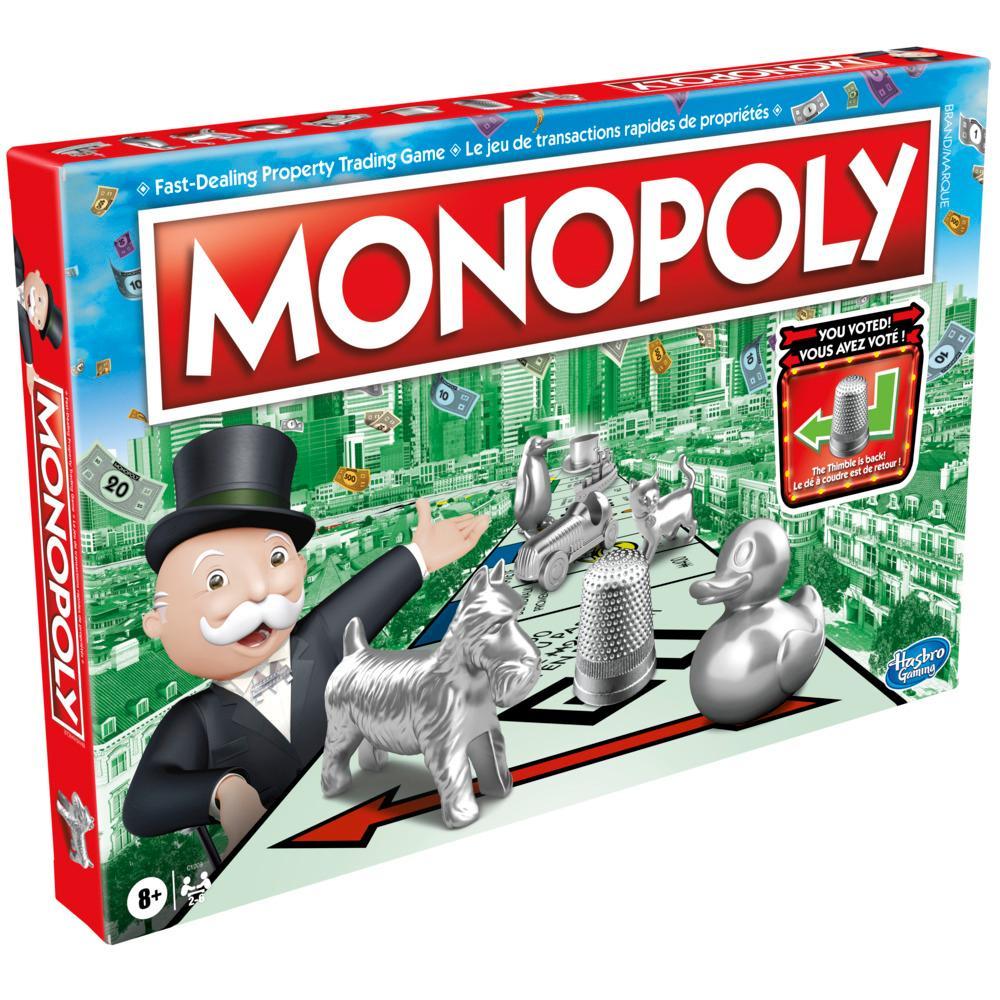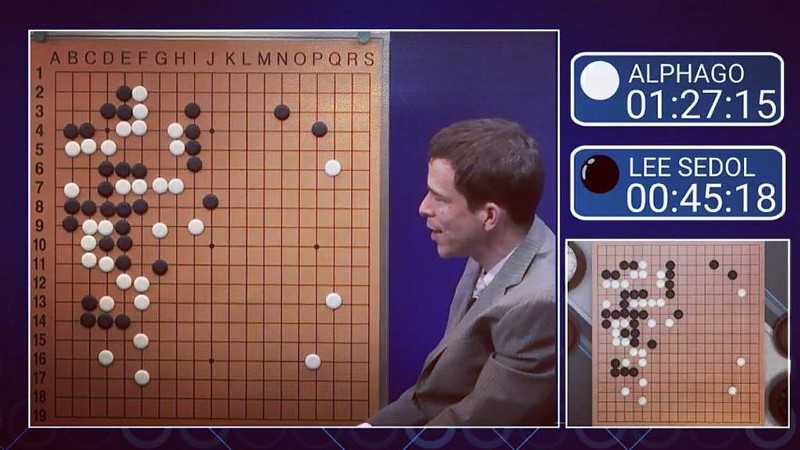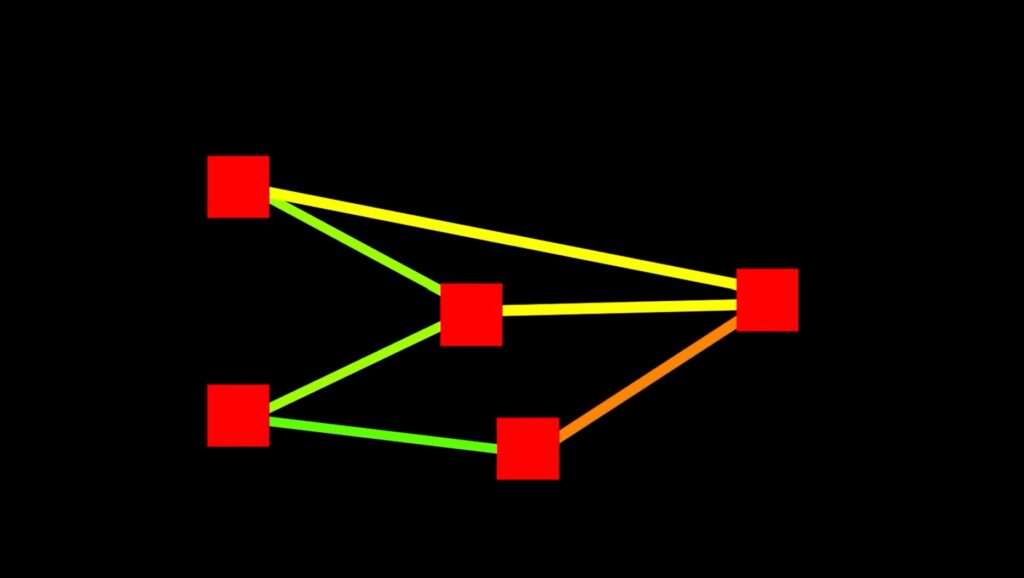Monopoly is a perfect game and a well-created example of pure capitalism in the form of a board, players, and some fake money. The history of Monopoly is intriguing and later in the blog, we will explore artificial intelligence’s inevitable play in the strategy of the best board game ever.
In 1903 a game designer named Elizabeth Magie made a game called “The Landlords Game” which was a precursor to the Monopoly game we all know and love today. Originally the game was meant to be an example of the dangers of giving one person too much power in the American market along with providing hours of long fun with the family. In the 1930s Charles Darrow adapted The Landlords Game and created a version with destinations we know like Park Place and Board Walk while adding a community chest and chance cards for a mix-up of the events of the game. This series of events leads us to Parker Brothers acquiring monopolies rights to create the full board game we have all played.
While the entertainment factor of Monoploy is questionable with ridiculously long play times and the need for multiple friends there, we can all agree that the game comes with some strategy that we could use next family game night to destroy the competition. Players all over the world have come up with the basic strategy of avoiding utilities, buying three houses in a color, shooting for red and orange properties, and ultimately creating a housing shortage to hopefully avoid bankruptcy and your little cousin boasting about his superior real estate knowledge.
Thankfully with the implementation of artificial intelligence in every other aspect of life, we also have been given the implementation into video games and strategy. Man versus machine has been around in strategy gaming for a bit, with the first notable example being in 1996 when IBM’s “deep blue” defeated the world’s best chess player under normal conditions in a game. Since the defeat of Gary Kasparov in chess, machines and artificial intelligence have been able to beat humans in the classic strategy Go, Rubik’s cubes, and many other games. AI and machine learning youtuber, b2studios, made an AI play one million games against other AI bots, to find out the ultimate monopoly strategy!
First, the AI was set to buy everything, trade nothing, and find the winner of the games by buying properties and running the other bots out of competition. With this strategy, the game was up to luck due to no sets being acquired most likely, and all bots owning properties till either stalemate or a slow bankruptcy of other bots. Along with pure luck, this showed what tiles are frequently visited. Due to the number of times the bots ended up in jail, the sets and tiles 12 spots after the jail were most visited during the million games, do with that what you will.
Second bot AI was made to allow for decisions made in the game, and not just random luck on acquiring properties and sets. This was made possible through neural networks, setting the inputs and decisions of monopoly as nodes, and allowing for an evolutionary style of machine learning to happen. The “fitness” of a bot network was rated on a tournament-style bracket, allowing the winners of the tournament to have more offspring in the next cycle of bot networks. When the youtuber allowed the bots to play millions of games, ultimately the best monopoly strategy would be the one on top, through sheer numbers during the evolutionary process.
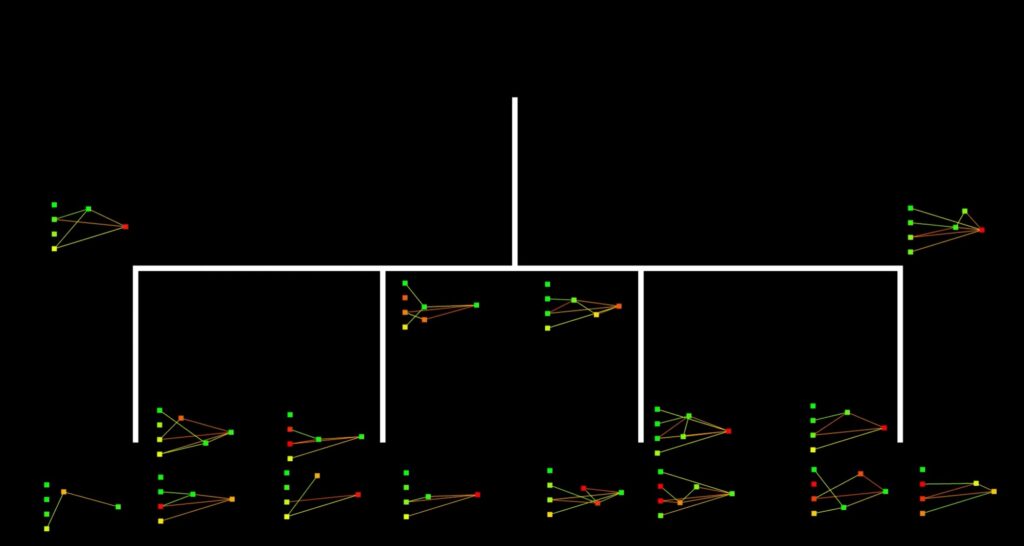
The total count of games played by the AI was 11.2 million. Throughout the 2-week process of the AI playing, the strategies came together. The AI figured out mortgaging, trading, buildings, and sets to progress to the average monopoly player. A heat map of the AI’s favorite and most winning properties was the railroads at one, oranges at 2, and red and purple at 3 and 4. While there was no perfect way to play Monopoly, using these strategies will give you an edge in the long run over your family at game night. Put it to good use.
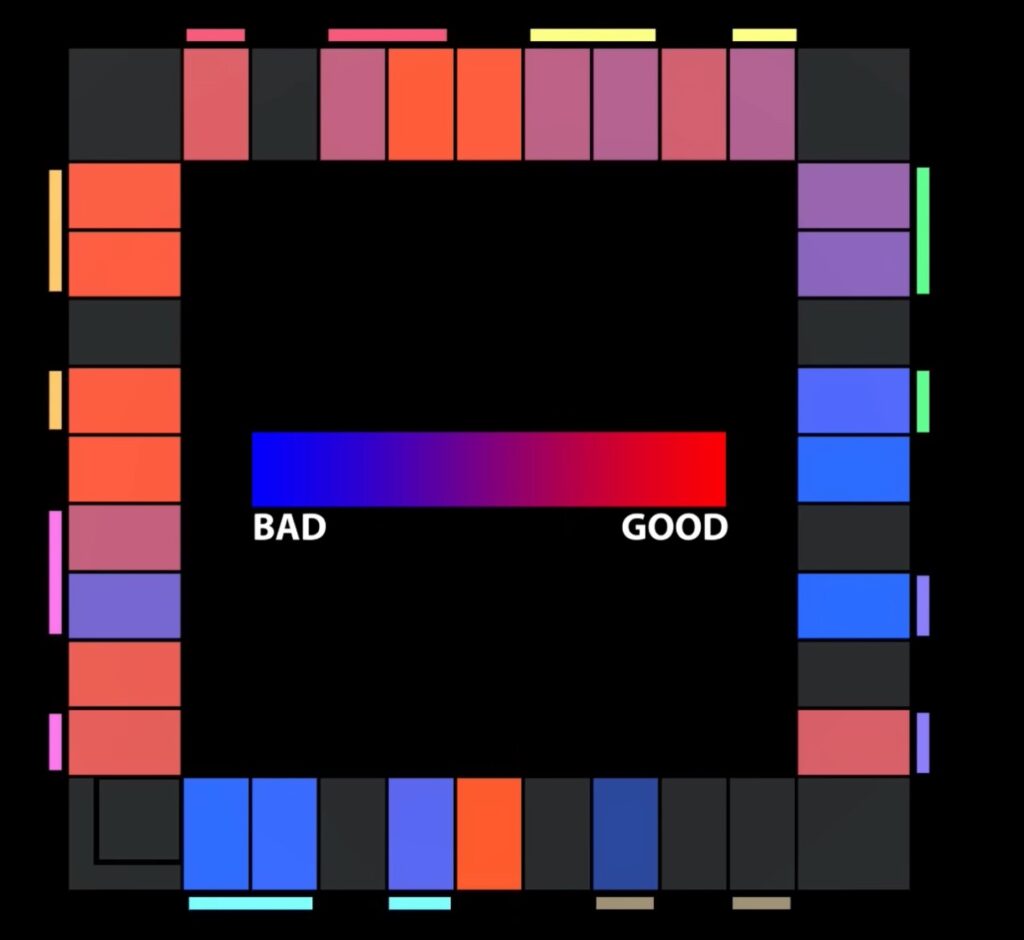
While Monopoly is a great game, AI’s use for bettering the world won’t be spent on strategy in games. The incredible speed of pattern recognition has many uses in business and everyday life. Like many examples thought in schools and online, the use of AI is just the tip of the iceberg and hopefully will change the world for the better. I hope you enjoyed the blog and have picked up new tips to win the competition next game night!
